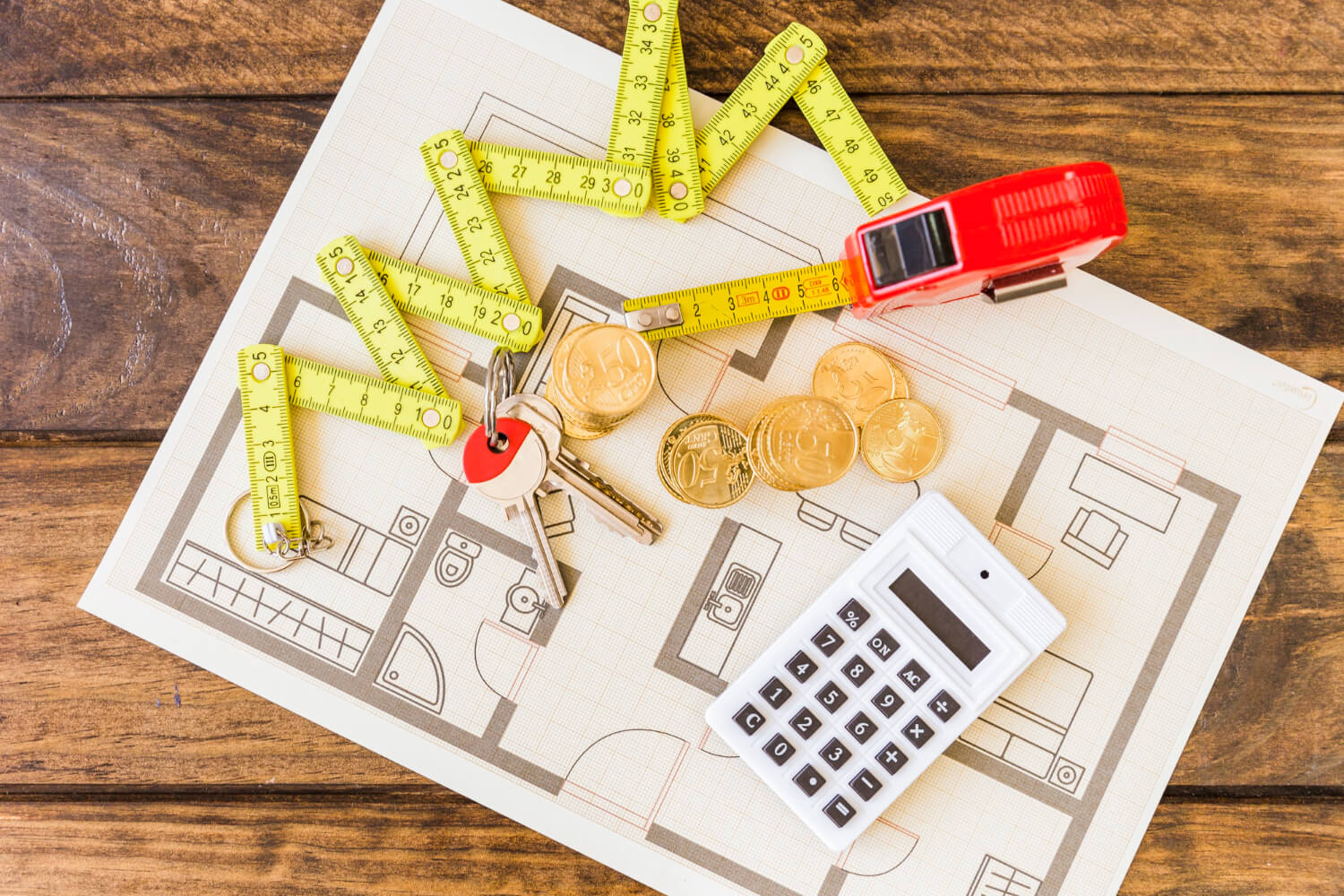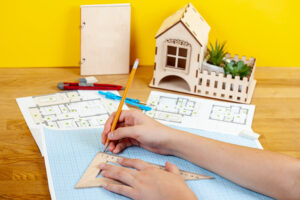Are you considering building your dream home but unsure about the costs involved? Wondering, “How much does it cost to build a custom home?” You’re not alone. Delving into the world of custom home construction can be exciting yet overwhelming, especially when it comes to budgeting. In this comprehensive guide, we’ll break down the various factors that influence custom home costs, helping you navigate through the complexities of budgeting for your dream home. Whether you’re exploring options or ready to take the plunge, understanding the costs involved is the first step towards realizing your vision.
Is a Custom Home a good fit for me?
When it comes to building a custom home, the costs can vary significantly depending on various factors, especially compared to other home building options.
Existing Homes: One option is purchasing an existing home. While this might seem like a straightforward choice, it’s essential to consider potential renovation or remodeling costs to align the home with your preferences and needs.
New, Single-Family Detached Homes: These are homes built by developers in planned communities or subdivisions. While they offer some level of customization, the options are typically limited compared to fully custom homes.
Custom Homes: Building a custom home from scratch allows you to design every aspect of your home according to your preferences. From the layout and architectural style to the materials used, the possibilities are endless.
Home Cost Variations: Several factors can influence the cost of building a custom home:
Size and layout of the home: Larger homes with intricate designs generally cost more to build.
Location: Building costs can vary depending on the region, local building codes, and availability of labor and materials.
Architectural design: Complex architectural features and customizations can drive up costs.
Quality of materials: The choice of materials, fixtures, and finishes can significantly impact the overall cost.
Land and site preparation: The condition of the land and any necessary site work can affect expenses.
Factors that Affect Custom Home Construction Costs
When considering the cost of building a custom home, various factors come into play, each contributing to the overall expenses.
Site: The location and condition of the site where your custom home will be built can significantly impact costs. Factors such as site preparation, land grading, soil conditions, and utility connections all contribute to the expenses associated with site development.
Scope/Size: The size and scope of your custom home project directly correlate with the overall cost. Larger homes with more square footage generally require more materials and labor, driving up construction expenses. Additionally, intricate designs or unique architectural features can further increase costs.
Structure Complexity: The complexity of the home’s structure, including its architectural design, can affect construction costs. Homes with unconventional layouts, multiple stories, or intricate structural elements may require specialized engineering and construction techniques, resulting in higher expenses.
Specifications: The level of customization and the quality of materials and finishes chosen for your custom home also play a significant role in determining costs. Upgrading to high-end materials, fixtures, and appliances will increase expenses compared to standard options.
Structural: Investing in the structural integrity of your custom home is crucial for long-term durability and safety. Factors such as foundation type, framing materials, and structural reinforcements can impact construction costs. Additionally, incorporating features like energy-efficient designs or hurricane-resistant construction may entail additional expenses.
Finishes: The finishes and aesthetic details of your custom home, including flooring, cabinetry, countertops, and trim work, contribute to its overall cost. Opting for luxury finishes or custom-designed elements will incur higher expenses compared to standard options.
Systems: Installing mechanical, electrical, plumbing, and HVAC systems is essential for a functional and comfortable custom home. The complexity and efficiency of these systems, as well as any additional features such as smart home technology or renewable energy systems, will influence construction costs.
By understanding these factors and their implications on custom home construction costs, you can make informed decisions throughout the planning and building process, ensuring that your dream home aligns with your budgetary requirements and vision.
What Custom Home Upgrades Should I Consider?
When planning your custom home, considering the right upgrades is essential to create a space that aligns with your lifestyle and preferences while enhancing its functionality and value. Here are some key upgrades to consider:
Energy-Efficient Features: Incorporating energy-efficient upgrades such as insulated windows, high-efficiency HVAC systems, LED lighting, and improved insulation can not only reduce utility bills but also minimize environmental impact. Or, for ultimate efficiency and comfort, consider building a Green Home or Passive House.
Smart Home Technology: Integrating smart home features allows for greater convenience, security, and energy management. Consider installing smart thermostats, lighting controls, security cameras, and automated window treatments to enhance your home’s efficiency and comfort.
Quality Materials and Finishes: Investing in high-quality materials and finishes can elevate the overall look and feel of your custom home while ensuring durability and longevity. Opt for premium flooring, countertops, cabinetry, and fixtures that suit your style and lifestyle.
Customized Storage Solutions: Maximize space and organization by incorporating customized storage solutions throughout your home. Built-in shelving, closet systems, pantry organization, and garage storage can help keep clutter at bay and streamline daily living.
Luxury Amenities: Enhance your lifestyle with luxury amenities tailored to your preferences. Consider additions such as a home theater, wine cellar, spa-like bathroom, outdoor kitchen, or swimming pool to create a personalized retreat.
Universal Design Features: Incorporating universal design features ensures that your home is accessible and functional for residents of all ages and abilities. Features such as wider doorways, no-step entries, lever door handles, and grab bars can enhance safety and comfort for everyone.
Outdoor Living Spaces: Extend your living space outdoors with well-designed outdoor living areas. Consider adding features such as a covered patio, deck, outdoor kitchen, fireplace, or landscaping to create inviting spaces for relaxation and entertainment.
What is the Average Cost to Build a Custom Home?
The average cost to build a custom home can vary widely depending on factors such as location, size, design complexity, quality of materials, and local labor costs. However, as a rough estimate, custom home construction typically ranges from $250 to $500 or more per square foot.
For example, a 2,500 square foot custom home could cost anywhere from $375,000 to over $1 million to build. Keep in mind that this estimate may not include the cost of land, site preparation, permits, landscaping, or additional upgrades and amenities.
It’s essential to work closely with reputable custom home builders, like Prime Building and Development, to develop a detailed budget that considers your specific preferences and requirements. They can provide guidance on cost-saving measures, recommend appropriate materials and finishes, and help ensure that your custom home project stays within your desired budget range. By thoroughly planning and budgeting for your custom home construction, you can create a dream home that meets your needs without breaking the bank.
How to Find the Right Custom Home Builder
Finding the right custom home builder is crucial for turning your dream home into reality. Here’s how to go about it:
Research: Start by researching local custom home builders in your area. Look for builders with a strong reputation, positive reviews, and a portfolio of completed projects that align with your style and vision.
Ask for Recommendations: Reach out to friends, family, and colleagues who have recently built custom homes for recommendations. Their firsthand experiences can provide valuable insights into the builder’s reliability, communication, and quality of work.
Check Credentials: Verify that the builders you’re considering are licensed, insured, and certified. This ensures that they meet industry standards and regulations and gives you peace of mind throughout the construction process.
Schedule Consultations: Meet with potential custom home builders to discuss your project requirements, budget, and timeline. Pay attention to their communication style, responsiveness, and willingness to listen to your ideas and concerns.
Review Portfolios: Take the time to review each builder’s portfolio of past projects. Look for examples of craftsmanship, attention to detail, and design innovation that resonate with your vision for your custom home.
Consider Experience: Choose a builder with extensive experience in custom home construction. Experienced builders are better equipped to navigate challenges, offer creative solutions, and deliver high-quality results.
Prime Building & Development is a trusted custom home builder known for their commitment to excellence, attention to detail, and customer satisfaction. With a team of skilled professionals and a track record of successful projects, Prime Building & Development is dedicated to bringing your dream home to life. Contact us today to learn more about our services and discuss your custom home project.






